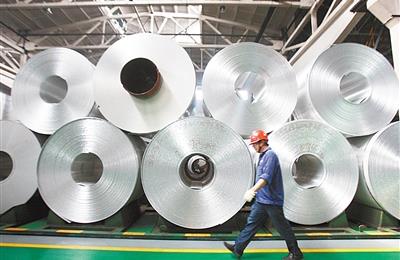The terms rust and corrosion are often used interchangeably, but they’re not the same. Corrosion is a broad reference to the wearing away of metal caused by a chemical reaction. Rust is a type of corrosion referring specifically to the oxidation of iron or steel caused by interaction with water or moisture. So does aluminum corrode, or does aluminum rust?
Aluminum doesn't contain iron or steel so it doesn't rust – but it is prone to corrosion when exposed to weathering and atmospheric oxygen. The process of aluminum corrosion is known as oxidation. The resulting aluminum oxide is a thin, hard layer that actually protects the metal from further corrosion.

Aluminum oxide appears as a powdery white or dull gray coating. As oxidation occurs, it hardens and creates a protective layer over the newly exposed areas of corroded aluminum. The aluminum corrosion process is actually halted by oxidation – the metal won't continue to deteriorate unless the aluminum oxide is removed. Unlike rust, which has a flaky, reddish appearance, aluminum oxidation cannot be easily chipped off the metal surface.
Aluminum oxidation occurs at different rates depending on the type of aluminum, the finish, and the environment surrounding the aluminum. Aluminum 5052, for example, is sometimes called The Hulk of aluminum alloys due to its durability and excellent corrosion resistance. Aluminum 3003, the most widely used of aluminum alloys, is also particularly good at resisting corrosion, but less favorable to anodizing, a factory process that mimics the natural process of oxidation to create a more durable metal with a corrosion-resistant aluminum finish.




QR Code
